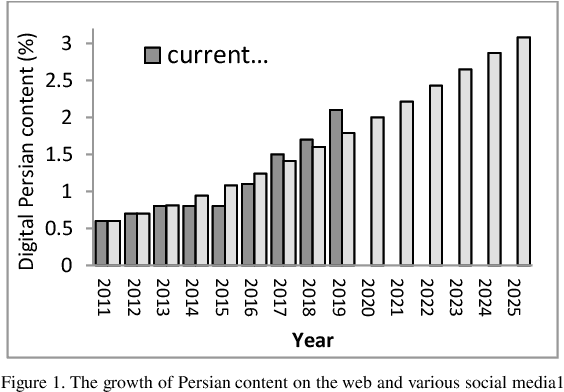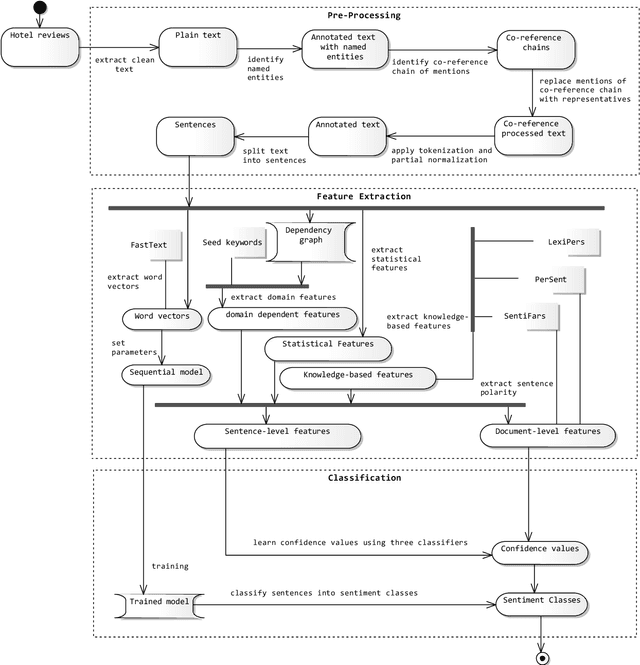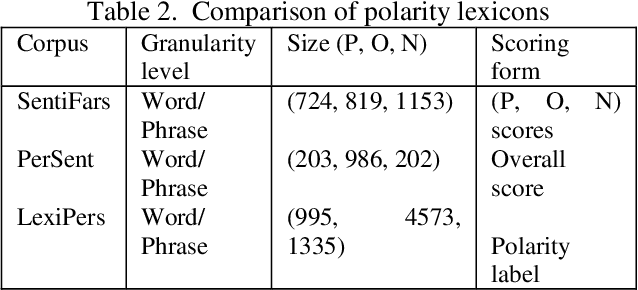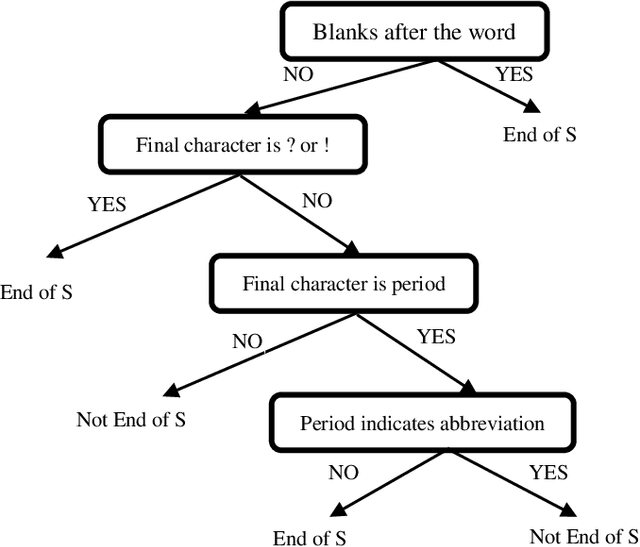Hojjat Emami
A novel approach to sentiment analysis in Persian using discourse and external semantic information
Jul 18, 2020



Abstract:Sentiment analysis attempts to identify, extract and quantify affective states and subjective information from various types of data such as text, audio, and video. Many approaches have been proposed to extract the sentiment of individuals from documents written in natural languages in recent years. The majority of these approaches have focused on English, while resource-lean languages such as Persian suffer from the lack of research work and language resources. Due to this gap in Persian, the current work is accomplished to introduce new methods for sentiment analysis which have been applied on Persian. The proposed approach in this paper is two-fold: The first one is based on classifier combination, and the second one is based on deep neural networks which benefits from word embedding vectors. Both approaches takes advantage of local discourse information and external knowledge bases, and also cover several language issues such as negation and intensification, andaddresses different granularity levels, namely word, aspect, sentence, phrase and document-levels. To evaluate the performance of the proposed approach, a Persian dataset is collected from Persian hotel reviews referred as hotel reviews. The proposed approach has been compared to counterpart methods based on the benchmark dataset. The experimental results approve the effectiveness of the proposed approach when compared to related works.
Graph Colouring Problem Based on Discrete Imperialist Competitive Algorithm
Aug 17, 2013



Abstract:In graph theory, Graph Colouring Problem (GCP) is an assignment of colours to vertices of any given graph such that the colours on adjacent vertices are different. The GCP is known to be an optimization and NP-hard problem. Imperialist Competitive Algorithm (ICA) is a meta-heuristic optimization and stochastic search strategy which is inspired from socio-political phenomenon of imperialistic competition. The ICA contains two main operators: the assimilation and the imperialistic competition. The ICA has excellent capabilities such as high convergence rate and better global optimum achievement. In this research, a discrete version of ICA is proposed to deal with the solution of GCP. We call this algorithm as the DICA. The performance of the proposed method is compared with Genetic Algorithm (GA) on seven well-known graph colouring benchmarks. Experimental results demonstrate the superiority of the DICA for the benchmarks. This means DICA can produce optimal and valid solutions for different GCP instances.
* 12 pages
 Add to Chrome
Add to Chrome Add to Firefox
Add to Firefox Add to Edge
Add to Edge